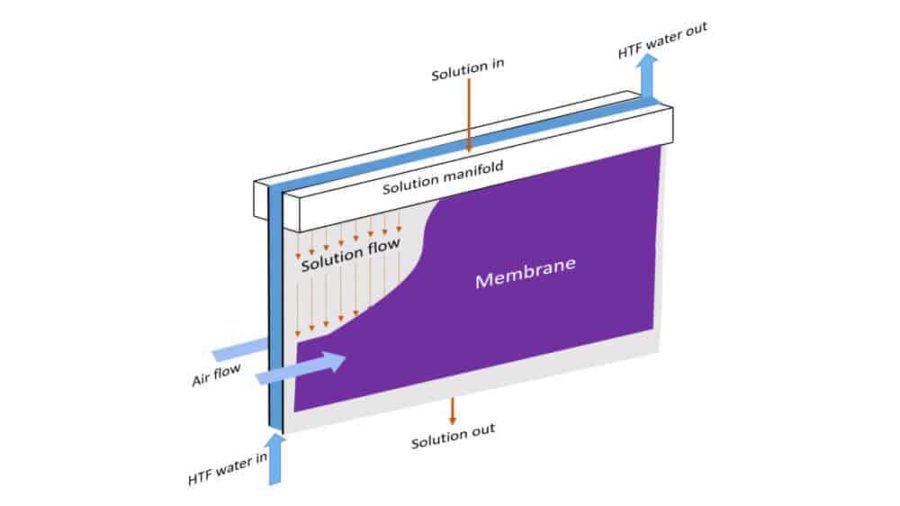A team of scientists from the Department of Energy’s Oak Ridge National Laboratory and the University of Florida has developed a novel method that could yield lower-cost, higher-efficiency systems for water heating in residential buildings.
The theory behind the newly termed “semi-open” natural gas-fired design, explained in an ORNL-led paper published in Renewable Energy: An International Journal, reduces the cost and complexity of traditional closed gas-fired systems by streamlining, and even eliminating, certain components.
“When applied, the new concept could result in better than 100 percent energy efficiency, because the system draws energy from the surrounding air as well as from the natural gas,” said ORNL’s Kyle Gluesenkamp, lead author of “Efficiency analysis of semi-open sorption heat pump systems.”
The versatile design combines water heating and dehumidification functions, which are typically found in separate architectures. In the semi-open scenario, the novel absorber device acts in place of the traditional evaporator component, pulling water vapor directly from the air through a membrane into a liquid solution. As the vapor is absorbed, much of the heat is transferred to domestic hot water.
The simpler semi-open system would operate at the surrounding atmospheric pressure, using an inexpensive, non-sealed solution pump. This approach eliminates the need for vacuum pumps found in closed systems that purge gas build up. It also allows manufacturers to consider lower-cost, lightweight polymers instead of costly, bulkier metals to build equipment, making it less susceptible to corrosion.

“The semi-open architecture introduces a new class of ultra-efficient heat pump water heaters that could become commercially available in a few years to homeowners seeking to replace their existing gas water heater,” Gluesenkamp said.
UF researchers are leading the development of a semi-open gas-fired heat pump prototype and are using both ORNL’s Building Technologies Research and Integration Center, a DOE user facility, and UF facilities to evaluate the potential of commercial applications.
Co-authors of the study include UF’s Devesh Chugh and Saeed Maghaddam, and ORNL’s Omar Abdelaziz. The research was supported by DOE’s Building Technologies Office.
UT-Battelle manages ORNL for the DOE’s Office of Science. The Office of Science is the single largest supporter of basic research in the physical sciences in the United States, and is working to address some of the most pressing challenges of our time. For more information, please visit http://science.


